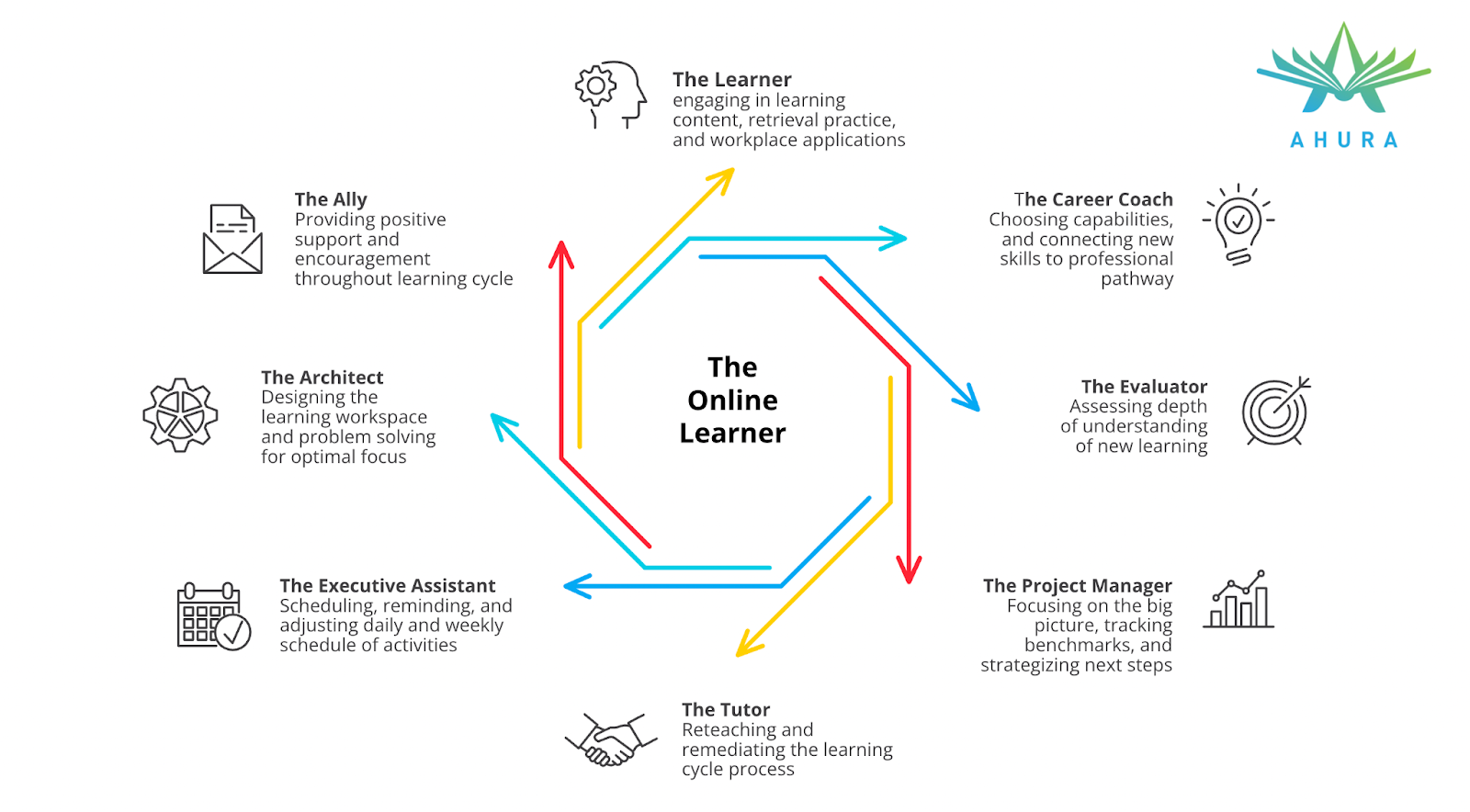
Whether it be for researching jobs or apartments, watching an interesting YouTube video, listening to a podcast, or completing work tasks, everyone appreciates the power of the internet and productivity devices in our lives. The same is true for its impact on our learning and professional development. According to the World Economic Forum, global edtech investments reached over $18 billion dollars in 2019. The WEF estimates that the overall market for online education will reach $350 billion dollars by 2025.
The future of education is online. But early adopters of online education, especially unplanned adopters during the covid-19 pandemic, are finding that there are many challenges to achieving the same level of education outcomes online compared to traditional methods. In addition to learning, they literally now have to perform more than 5 other jobs that used to be completed by their teacher, peers or other parts of traditional education systems
Choosing A Rewarding Study Path
Many times learners see that there is a gap in their experiences or a new area they’d like to become an expert in for potential career expansions but are unsure of how or where to start. What are the best resources to use? What content sequence will lead to the best outcomes? What is the level of financial investment I need to make in order to reach my goals? And finally, what options best match my everyday schedule of responsibilities?
In more traditional formats, many of these choices would be recommended to or made for the learner by a manager or skilled educator, or coach. Learning through digital platforms requires a discerning eye and the ability to make savvy decisions without getting distracted or overwhelmed by the limitless options available online.
Staying Engaged & Focused
One of the primary challenges for learners is consistent focus and engagement throughout their course or upskilling activity. Even when the learner is highly motivated by the future benefits to their career pathway, that drive does not always transfer into the daily grind of mastering something new and challenging. Adding to that the stresses of maintaining the professional responsibilities and personal activities others expect from us can fuel frustration and lead to less than optimal results.
This inability to complete training that could greatly enhance a worker’s viability and advancement in the workplace is a significant finding. For example, research shows that in 2017-2018, only 46% of all students enrolled as ‘verified’ in a MOOC completed their course and when the data included all enrolled students, that number dropped to just 3.13%.
This ability to engage and persist is one of the biggest challenges of self-directed learning via online resources. This is because it requires the learner to navigate new content while managing a range of emotions and developing the growth mindset and regulation skills necessary for success. And while the learner is doing all of these things, they are also attending to a diverse set of learning tasks such as evaluating their understanding, setting and managing deadlines, and maintaining a positive and efficient learning environment.
In-person learning leverages the power of the group dynamic to support positive work habits and navigate the inevitable emotional ups and downs that come with the trial and error cycle of new learning. Digital learners will need to find new support systems and internal strengths and systems to consistently engage and succeed.
Following A Learning Plan Through To Completion (From Beginning To End)
Learners struggle to complete learning goals for a variety of reasons. Sometimes it is due to something called planning fallacy, how easy it is to underestimate the time needed to fully learn a new concept or skill. And in other cases, it is the challenge of scheduling time for upskilling in a supportive learning environment that can derail the best intentions of a worker. For in-person learning experiences, the oversight and accountability for completion is shared between the learner and the professional trainer/educator. For the digital learner to be successful, they must gain the executive functioning and project management skills necessary to be accountable to and for themselves.
Deepening & Applying New Capabilities For New Opportunity & Growth
Once a learner completes a learning plan, the obvious question is “What now? What’s next?” Understanding how to take that new capability and move it into a new position or career requires additional expertise and support that would typically be a part of in-person training programs. The digital learner looking to upskill is required to juggle simultaneous dual roles as both the learner and the support system.
Ahura AI’s Commitment To Education
Ahura AI’s focus is to reintroduce the crucial benefits of traditional education systems into the new age of digital learning. The course curation, the incentives and peer encouragement, the accountability and the fruitful application of capabilities. The current phase of digital learning has been plagued with challenges and abandoned learning journeys; we strive to unlock the next phase of online learning by artificial intelligence to empower billions to realize their career dreams and progress humanity.
Click on our poll and check back next week to see what readers have ranked as the toughest challenge they wish to overcome in online learning.